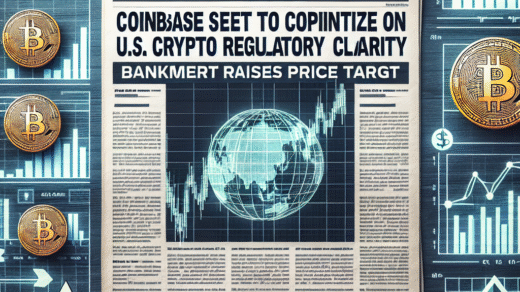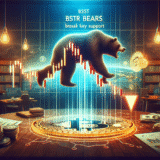In the rapidly changing landscape of financial markets, traditional investment firms cling to age-old strategies: “time in the market beats timing,” “move slowly,” and “big money is in the waiting.” While these maxims may have served investors well two decades ago, they are now ill-suited to a world dominated by stories, memes, and cultural shifts that gain traction through social networks like X and Reddit. The reality is that financial markets are no longer solely dictated by earnings reports and balance sheets; they are now influenced by a new generation of retail investors who are reshaping the way we think about trading.
The Rise of the Retail Investor
Today, retail investors have evolved from passive observers to active market movers, equipped with the tools and platforms necessary for real-time analysis and coordination. The infamous GameStop rally of 2021 serves as a prime example of this shift, where retail traders from Reddit’s WallStreetBets community mobilized to challenge institutional investors, resulting in massive losses for short sellers. This event illustrated the power of collective action among individual investors and marked a turning point in the dynamics of market influence.
Understanding Market Dynamics
Contrary to popular belief, markets do not crash solely due to speculative trading in meme stocks. Historical events, such as the Dot-com Bubble, demonstrate that crashes often occur when both institutional and retail investors cling stubbornly to past winners, ignoring the underlying indicators of market overvaluation. Crashes take place when confidence in previous positions hardens into blind faith, ultimately necessitating a market reset.
Speculation: A Forces for Market Honesty
Speculation plays a crucial role in maintaining market integrity by prompting constant reevaluation of asset values. Retail investors engage in daily discussions regarding the prospects of stocks or cryptocurrencies, diving into company fundamentals and market narratives. This active engagement helps to stress-test narratives in real-time, offering a vital service in an era where passive investing strategies dominate.
The Power of Retail Communities
In the U.S. and the U.K., retail trading now accounts for 20-35% of market volume. Additionally, in the cryptocurrency realm, trade volumes have surged, pushing the total market cap beyond $4 trillion. However, it is not just about the numbers; it’s about the intelligence and insights that retail communities bring to the table. Platforms like Reddit and Discord facilitate collective analysis of news, regulatory filings, and earnings calls, often yielding insights that catch institutional investors off guard.
Leveraging Technology and Information
With the advent of AI-driven tools and educational platforms, retail investors are now more informed and capable than ever before. They can swiftly process data and sentiment, allowing them to act on market movements more rapidly than traditional brokers. As retail trading continues to gain momentum, companies are beginning to recognize the value of engaging directly with these investors. CEOs are now prioritizing communication with retail communities, acknowledging their passion and long-term commitment to stocks.
Confronting the Speculation Debate
As we look ahead to 2025, naysayers continue to argue that the speculative nature of retail trading is detrimental to price discovery, labeling markets as a “casino.” This perspective overlooks the fundamental reality that prices have always been driven by collective beliefs about future values. The rise of cryptocurrency exemplifies this dynamic; early detractors labeled it as mere speculation, yet it represented an accelerated form of price discovery, testing more ideas in a short time than traditional venture capitalists could manage in a decade.
Strategies for Success in Modern Trading
As the market evolves, investors must adopt a hybrid approach that combines solid analysis with narrative awareness. Often, a company with a compelling story will outperform a fundamentally strong but dull one. Success in this environment requires flexibility and the ability to pivot when narratives change. Diversifying based on both assets and stories enhances risk management and positions investors to capitalize on emerging opportunities.
Distinguishing Between Noise and Volatility
In this new trading landscape, it is crucial to differentiate between genuine market volatility and mere noise. Investors should remain vigilant, discerning between credible analysis and misinformation that can spread rapidly within communities. By navigating these dynamics, investors can stay ahead of the curve and leverage the insights provided by retail trading communities.
Embracing the Future of Retail Trading
Retail trading is not a fleeting trend; it is a fundamental shift in the financial landscape. The technology and community structures that support retail investors are only growing stronger. By understanding this new normal and leveraging social intelligence alongside traditional market analysis, investors can thrive. The future belongs to those who can adapt and expand their toolkit beyond outdated strategies, embracing a world where information flows instantly, and communities coordinate buying and selling in real-time.
In conclusion, speculation empowers investors to read both fundamentals and social sentiment, effectively identifying undervalued assets and emerging narratives before the broader market catches on. To succeed in this evolving environment, investors must be willing to adjust their strategies and remain engaged with market discussions.
Meta Description: Discover how retail trading is revolutionizing financial markets in our latest article. Explore the power of speculation, the rise of retail investors, and strategies for success in a rapidly evolving trading landscape. Join the conversation today!







